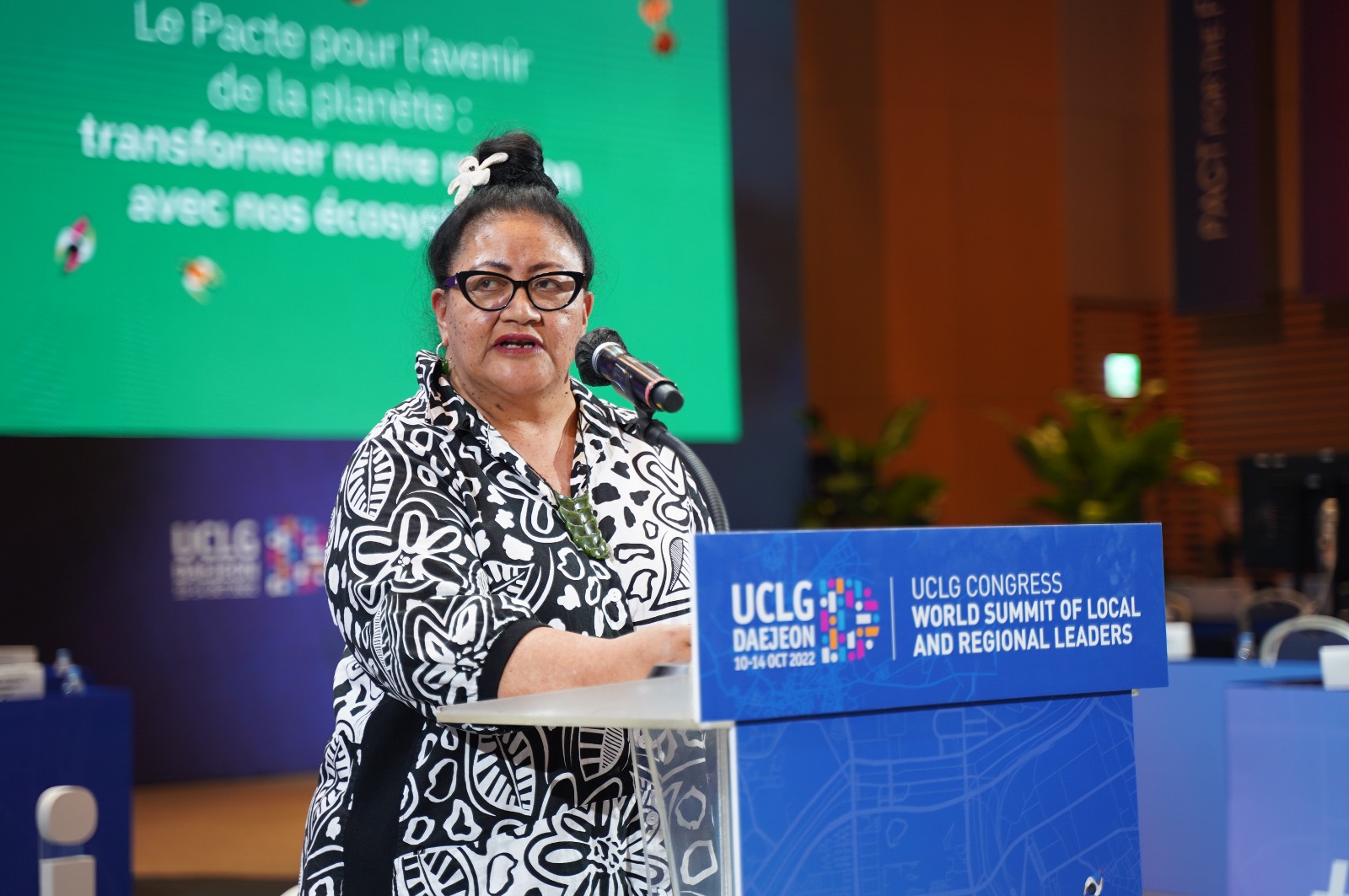Caring for the planet is only possible by transforming the way we organize our consumption and production patterns, and by delivering on ambitious commitments to sustainability, resilience, and net zero emissions.
The second session of the Pact for the Future for Humanity, coinciding with the celebration of the International Day for Disaster Risk Reduction, focused on the “planet” aspect and on transforming the relationship with our ecosystems.
The Pact for the Future of Humanity session on the planet emphasized the need to transform our collective relationship with nature, and that local and regional governments must spearhead the development of a new vision for our common future. To reach this vision, we must address climate change, both from a mitigation and adaptation perspective, while re-examining our values and co-creating systems for resilience.
The importance of empowering local communities to play a central role in protecting biodiversity, the environment, and the planet was discussed. Their key role in recreating local jobs, optimizing resources, in order to increase the quality of life and protect the environment, and encouraging the urgent transition to renewable energy systems was also highlighted.
The President of the region of Nouakchott in Mauritania, Fatimetou Mint Abdel Malick, stressed that millions of people still lack access to the most basic urban services, which is the result of a conscious political choice, not a lack of resources. “We take care of the planet by developing a harmonious relationship between humanity and nature that protects the ecology and our life systems,” she explained.
Hisham Amna, Minister of Local Development of Egypt, the host country of COP27, stressed that fighting climate change provides a path to an equitable future. The “coming years are about time to start transforming visions into specific projects to solve climate crisis,” he added. The Minister called for an urgent collaborative effort on current issues from migration to food security.
Mami Mizutori, the Special Representative of the Secretary-General for Disaster Risk Reduction, conveyed that there is a strong evidence that local and regional governments that invest in disaster risk reduction can protect both their citizens and their ecosystems.
As a representative of the social society stakeholders, Pefi Kingi of the Queen’s Service Medal (QSM) – Pacific Regional Focal Point Migration noted that “by 2050, there will be 258 million people on the move due to the climate impact, large cities are costal, and we all want resilience for those cities.” She called on UCLG leaders to extend their focus on the importance of oceans, and meaningfully include indigenous communities in conversations on the future of cities. Andrew Potts, from the Climate Heritage Network, addressed the local and regional leaders in the attendance, asking: “How are you, and how are we together, going to fix the climate response?”
Gabriel Ferrero de Loma–Osorio of the Committee on World Food Security stressed that food security can only be achieved if mayors and presidents of local associations work jointly. He commended UCLG for their support for constructing the urban-rural dichotomy to frame the policy environment around a more holistic and integrated approach to territories. Daniel Akinjise of the UCLG Youth Caucus said that youth need local officials to act, as they face food and water scarcity in addition to the climate issues.
“We need to listen to youth and to act today, so they have a future” Irací Hassler, Mayor of Santiago said. She stated that environmental education is important, as well as the lessons learned from multilateral initiatives. “Political projects won’t be able to implement without future generations,” she concluded. Noraini Roslan, Mayor of Klang, says that specific local and regional governments in Malaysia declared a climate emergency and moved commitments from carbon neutral to net zero.
Fozia Khalid Warraich, Chairperson of Toba Tek Singh District and President of the Local Councils Association of the Punjab said that Pakistan was the first country to adopt the SDGs as its national development agenda. While Fernando Gray, Mayor of Esteban Echevarria, insisted that the local government has to be in the center of all global discussions on sustainability and that “multilateralism is a future of sustainability.”
Andreas Wolter, Mayor of Cologne and Jorge Pérez Jaramillo of the UCLG-Ubuntu Advisory Board both invited local and regional leaders to join hands and contribute to the sustainability initiatives. They called on local and regional governments to urgently move from over-consumption of natural resources to the protection of biodiversity, oceans, land, subsoil and atmosphere, as current patterns of production and consumption are destructive and totally unsustainable.
Partners driven by shared aspirations are invited to consultations exchanging and engaging on a concrete compromise for the future of the planet which will guide actions at this foundational moment. The future must take precedent over business as usual in the transition to zero carbon and local resilience, and we must drive change in building sustainable, equitable, and resilient cities and communities.

